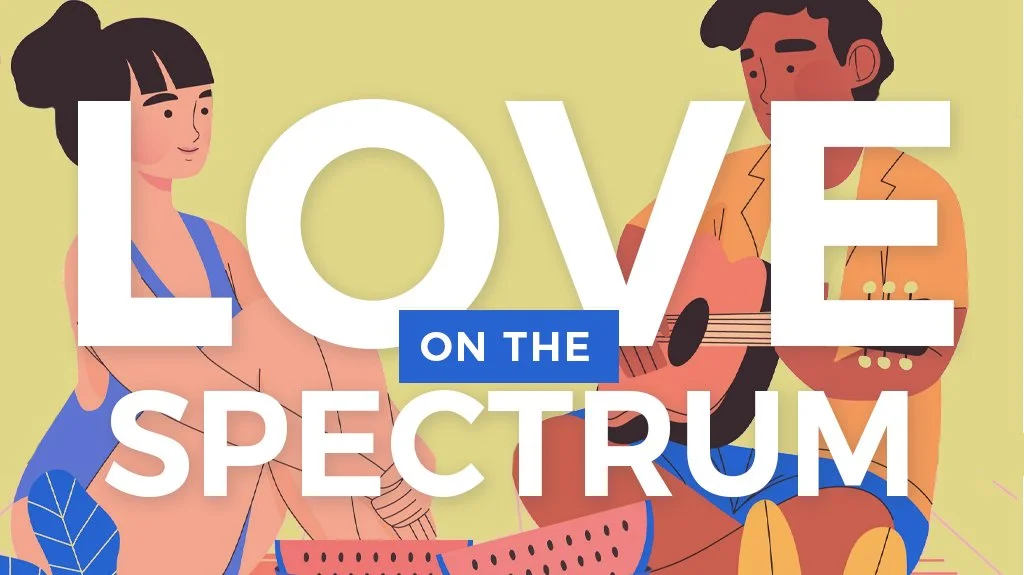What’s Love (on the Spectrum) Got to Do with It?
Navigating the world of dating can be exciting—and challenging!—for anyone, but for individuals on the autism spectrum, it may present unique considerations and difficulties. Autism spectrum disorder (ASD) and other forms of neurodivergence can impact social interactions, communication, and sensory experiences, which in turn influences dating dynamics. However, with self-awareness and strong social skills, autistic individuals can develop fulfilling and meaningful romantic relationships.
But first, some mythbusting
There’s a particularly troublesome myth that autistic, ADHD and other neurodivergent people don’t want love and affection like their allistic peers. The truth is everyone has different needs and desires. And we mean EVERYONE, regardless of neurotype. The myth that a group of people don’t desire love or intimacy is fueled by the reality that neurodivergent individuals—because of communication and social challenges—may withdraw or isolate more often than their neurotypical peers.
Rejection hurts so it is natural and self-protective to withdraw from painful experiences. But by being able to communicate effectively, to understand and set strong boundaries, and developing relational skills all go a long way toward smoothing the path to finding true love, or at least a steady date for Saturday nights.
Here are some DOs and DON’Ts to consider when dating, especially if you struggle with nonverbal communication or understanding social norms:
DO:
KNOW YOURSELF: Understand your own strengths, weaknesses, and preferences. Self-awareness can help you communicate your needs, desires, boundaries, and concerns effectively to potential partners. The more self-aware you are, the better you’ll be able to show up authentically, rather than being overly concerned about whether or not the other person likes you before you even get the chance to know them.
COMMUNICATE CLEARLY: Be upfront about your communication style and preferences. For example, if making sustained eye contact is difficult for you, tell your date something like “I’m uncomfortable with eye contact, but I’m VERY interested in what you’re saying and I AM paying attention to you” or simply, “I’m listening.” Many people find direct communication to be kind of off-putting, but by expressing your thoughts, feelings, and intentions openly and honestly, you’ll be showing up authentically and letting others know who you are and where you stand.
SET AND RESPECT BOUNDARIES: Establish boundaries early in the relationship and communicate them clearly. Boundaries help establish mutual respect and understanding between partners and it’s best to be assertive in expressing your needs. This goes both ways: if your date or partner sets a boundary with you, it’s up to you to honor it. If you’re unsure of their boundaries, ask them directly. Many people have trouble articulating their needs, so by checking in with your partner, you set the stage for good habits on both sides.
PRACTICE SELF-CARE: Dating can be really exciting. And it can be a roller-coaster, with big ups and downs and sometimes downright awful experiences, so it's important to prioritize self-care. Take time for activities that help you relax and recharge, whether it's spending time alone, engaging in hobbies, or seeking support from friends and family. Remember YOU—as much as anyone else—deserve your best treatment, love, and care.
FIND COMPATIBLE PARTNERS: Look for partners who are understanding, patient, accepting of your unique qualities AND sensitive to your communication and sensory preferences. Seek out individuals who are willing to learn about autism (or ADHD, OCD or any other form of neurodivergence) and accommodate your needs. This doesn’t mean you need to find someone who shares your neurotype, necessarily; in fact, many enduring, healthy relationships are between people who have differing neurotypes.
Now for some DON’Ts:
DON’T IGNORE RED FLAGS: Pay attention to any warning signs or red flags in the relationship, especially the sensations of your own body.. Trust your instincts and don't dismiss concerns that arise. If something doesn't feel right, it's important to address it openly and honestly. If you’re unable to resolve your concerns to your satisfaction, it may help to talk through your concerns with a trusted advisor, counselor, friend or relative who can offer an objective perspective. It is fully OK to put an end to a relationship that feels unsafe or disrespectful; you do not owe anyone your allegiance or a deeper relationship simply because you had a few dates or thought you were interested in them in the past.
DON’T RELY SOLELY ON ONLINE INTERACTIONS: Online dating can be a convenient way to meet people; it can also be a drag at best or a nightmare at worst. Not everyone represents themselves honestly online. If you think you’re genuinely interested in meeting someone in real life, it’s essential to move beyond online interactions and meet potential partners face-to-face. In-person interactions provide valuable opportunities to gauge compatibility and build meaningful connections. A good intermediate step—if you’re comfortable with it—is to have a video chat with your prospective date before meeting up in person. .
DON’T OVERLOOK SOCIAL SKILLS DEVELOPMENT: While it's important to embrace your authentic self, it can also be beneficial to work on developing social skills and communication strategies. Seek support from therapists, support groups, or social skills training programs to enhance your interpersonal skills.
DON’T FEEL PRESSURED TO FIT IN: Embrace your uniqueness! Resist the pressure to conform to societal norms or expectations. Remember that everyone has their own quirks and idiosyncrasies and what matters most is finding someone who appreciates and accepts you for who you are. You’re not a good fit for everyone and everyone isn’t a good fit for you! Also, you should really only date if you feel like you want to, don’t start dating just because your peers or friends are doing it.
DON’T FORGET TO HAVE FUN: Dating should be an enjoyable and enriching experience. Have fun! Don't get too caught up in the pressure to find a perfect partner or adhere to strict dating rules. Rather, focus on building genuine connections, sharing fun and meaningful experiences, and enjoying the journey along the way.

